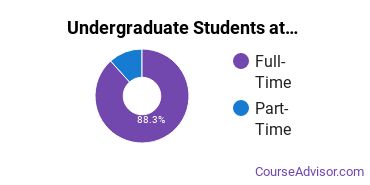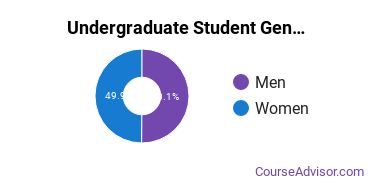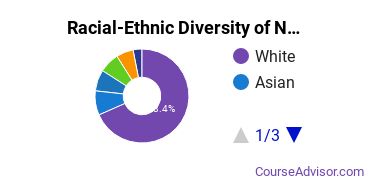North Carolina State University Overview
North Carolina State University is a public institution located in Raleigh, North Carolina. The location of the school is great for students who enjoy the amenities of city life.
What Is North Carolina State University Known For?
- The highest award offered at NC State is the doctor's degree.
- In a recent academic period87% of the faculty were full-time.
- A student who earns a bachelor's degree from NC State makes roughly $68,758 a year. This is 69% more than their peers from other colleges and universities.
Where Is North Carolina State University?

Contact details for NC State are given below.
| Contact Details | |
|---|---|
| Address: | 2101 Hillsborough Street, Raleigh, NC 27695-7001 |
| Phone: | 919-515-2011 |
| Website: | www.ncsu.edu |
How Do I Get Into NC State?
You can apply to NC State online at: admissions.ncsu.edu/apply/
Admission Requirements for NC State
| Submission | Required? |
|---|---|
| High School GPA | 1 |
| High School Rank | 5 |
| High School Transcript | 1 |
| College Prep Program | 1 |
| Recommendations | 5 |
| SAT or ACT Scores | 5 |
| TOEFL | 1 |
How Hard Is It To Get Into NC State?
Approximately 44% of accepted students are men and 56% are women. The acceptance rate for men is 43%, and the acceptance rate for women is 52%.
Average Test Scores
About 25% of students accepted to NC State submitted their SAT scores. When looking at the 25th through the 75th percentile, SAT Evidence-Based Reading and Writing scores ranged between 630 and 710. Math scores were between 650 and 750.
Can I Afford North Carolina State University?
The net price is calculated by adding tuition, room, board and other costs and subtracting financial aid.
Student Loan Debt
Almost 66% of college students who graduated with the class of 2018 took out student loans, but that percentage varies from school to school. At NC State, approximately 42% of students took out student loans averaging $7,194 a year. That adds up to $28,776 over four years for those students.
Explore Best Ranked Schools for You
North Carolina State University Undergraduate Student Diversity

There are also 9,892 graduate students at the school.
Gender Diversity
Of the 22,929 full-time undergraduates at NC State, 51% are male and 49% are female.

Racial-Ethnic Diversity
The racial-ethnic breakdown of North Carolina State University students is as follows.

| Race/Ethnicity | Number of Grads |
|---|---|
| Asian | 1,826 |
| Black or African American | 1,368 |
| Hispanic or Latino | 1,539 |
| White | 15,731 |
| International Students | 704 |
| Other Races/Ethnicities | 1,761 |
Geographic Diversity
North Carolina students aren't the only ones who study at North Carolina State University. At this time, 42 states are represented by the student population at the school.
Over 103 countries are represented at NC State. The most popular countries sending students to the school are India, China, and South Korea.
North Carolina State University Undergraduate Concentrations
The table below shows the number of awards for each concentration.
References
*The racial-ethnic minorities count is calculated by taking the total number of students and subtracting white students, international students, and students whose race/ethnicity was unknown. This number is then divided by the total number of students at the school to obtain the racial-ethnic minorities percentage.
- College Factual
- National Center for Education Statistics
- Image Credit: By Haruhide000 under License
More about our data sources and methodologies.
